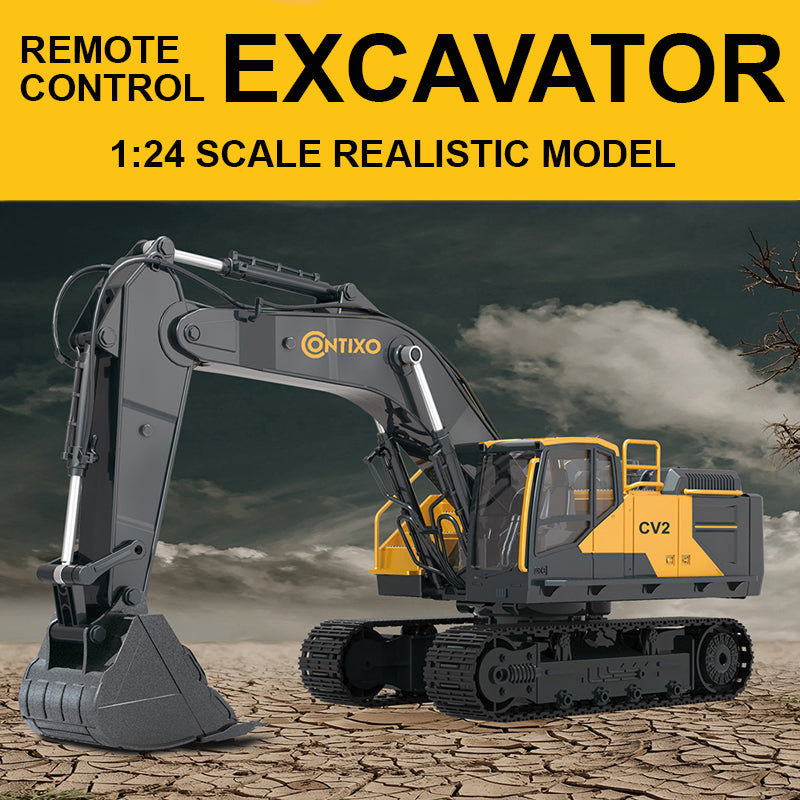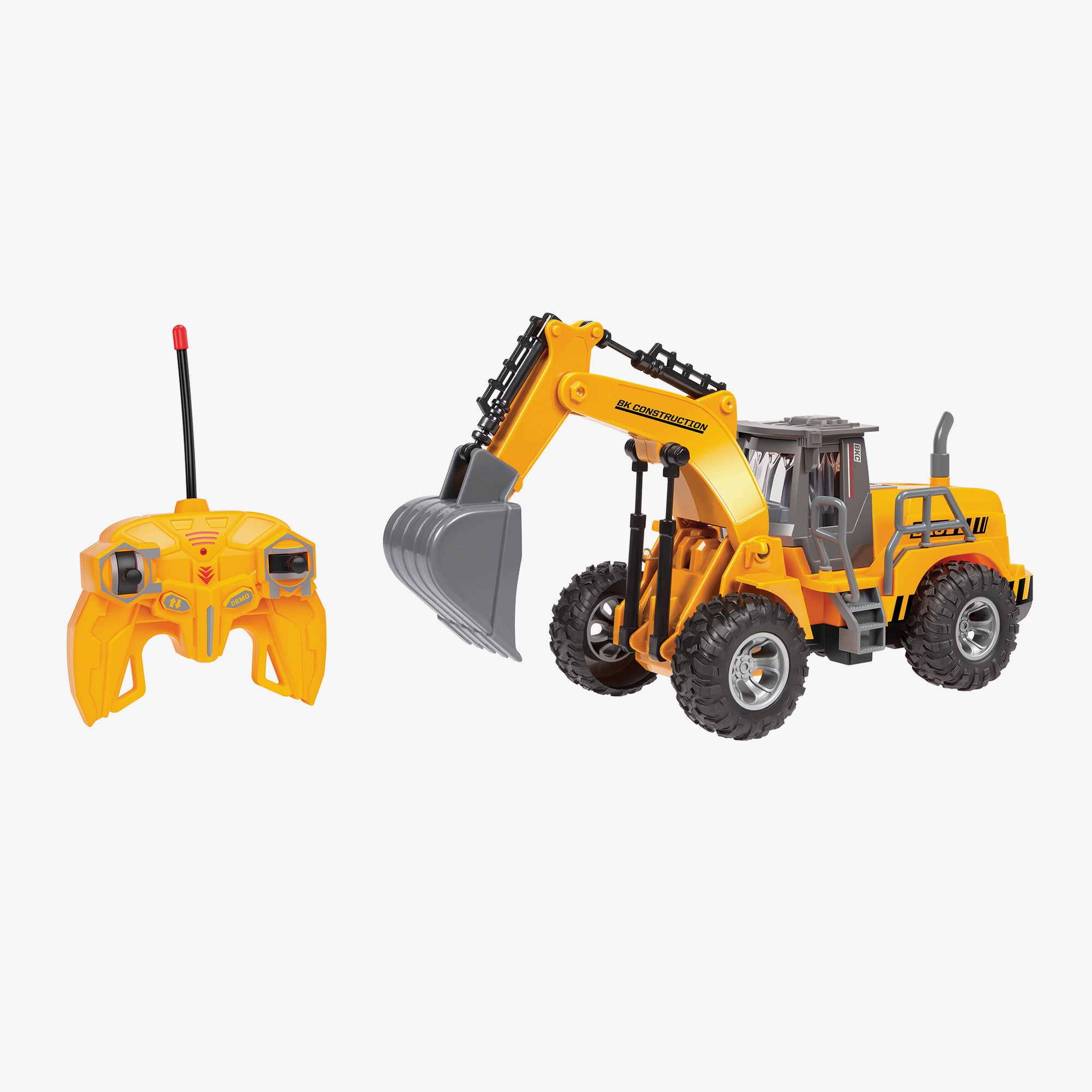Discover the Value of Excavator in Modern Building Projects
Excavators are crucial tools in modern building projects. Their adaptability enables them to carry out a wide array of tasks, from excavating and grading to demolition and site prep work. Advanced attributes, such as hydraulic add-ons and GPS, improve their abilities and effectiveness on work websites. As the sector advances, the value of excavators expands much more. Understanding their role can disclose insights right into the future of construction methods. What exists in advance for these machines?
The Versatility of Excavators in Numerous Projects
Although excavators are often associated with large-scale building tasks, their flexibility enables them to be used in a large variety of applications, from residential landscaping to energy upkeep. In urban settings, excavators can navigate limited areas to dig structures for homes or install drain systems. Their ability to do delicate jobs makes them optimal for landscaping tasks, where they can dig deep into for fish ponds or plant trees. Additionally, excavators play an important function in energy maintenance, successfully digging trenches for pipes or cables without disrupting surrounding locations. In agricultural applications, they assist in land cleaning and soil prep work. Their adaptability enables them to be geared up with different add-ons, improving their performance across different jobs. This complex nature of excavators not just improves numerous building and construction processes yet also shows their integral duty in modern-day infrastructure growth and upkeep.
Secret Attributes and Kinds Of Excavators
The conversation on key functions and sorts of excavators highlights the vital features that make these equipments important in building and construction. Different excavator types, each developed for details tasks, demonstrate their convenience and effectiveness throughout different applications. rc excavator. Comprehending these attributes and categories is crucial for enhancing their usage in modern-day building and construction jobs
Excavator Keys In Introduction
Excavators play a pivotal function in contemporary construction, offering flexibility and performance across various tasks. These heavy machinery units come in a number of kinds, each customized for certain applications. One of the most typical kinds include crawler excavators, known for their security on uneven surface, and wheeled excavators, which give greater wheelchair on smooth surface areas. Miniature excavators are preferred for limited rooms and small jobs, while long-reach excavators are created for deep digging. Furthermore, there are specific excavators, such as hydraulic excavators, which boost power and precision. Each type includes unique capabilities, making them essential for tasks ranging from digging and grading to demolition and material handling. Recognizing these variants allows building and construction specialists to select the right excavator for their task needs.
Key Includes Explained
Recognizing the essential functions of excavators boosts their reliable application in construction tasks. Excavators are characterized by their effective hydraulic systems, which supply the needed pressure for digging, lifting, and relocating materials. Their articulated arms permit a vast array of activity, assisting in specific operations in restricted rooms. In addition, the variety of accessories, such as containers, grapples, and augers, broadens their adaptability to satisfy various project needs. The size and weight of excavators additionally add to their security and maneuverability on different surfaces. Moreover, advancements in innovation have actually brought about the integration of GPS and automation, enhancing precision and efficiency in excavation jobs. These features jointly position excavators as essential devices in modern building and construction.
Applications in Building
Transforming building and construction websites, excavators play a critical function across various applications, ranging from residential structure tasks to massive framework advancements. These flexible devices are furnished for tasks such as excavating structures, trenching for utilities, and website grading. Various sorts of excavators, including spider, wheeled, and mini excavators, offer particular benefits tailored to the task requirements. Crawler excavators master harsh terrains, while wheeled excavators offer movement on paved surfaces. Miniature excavators are suitable for restricted spaces, making them prominent in city settings. The effectiveness and power of excavators substantially speed up construction processes, ensuring timely task completion. Their versatility further boosts their value, enabling building groups to deal with a diverse array of obstacles efficiently.
Enhancing Effectiveness and Efficiency on Task Sites
Taking full advantage of efficiency and performance on job websites is an essential purpose in contemporary building and construction. Excavators play an essential function in accomplishing this goal by improving different tasks. Their capacity to carry out multiple functions-- such as grading, excavating, and training-- lowers the need for added tools, consequently saving time and resources.Moreover, excavators enhance process by enabling faster conclusion of projects. With advanced features like hydraulic add-ons and general practitioners modern technology, they can perform exact procedures that reduce mistakes and remodel. This precision not just enhances the high quality of work but likewise enhances product use, adding to cost savings.The flexibility of excavators allows them to adjust to different website problems, making sure that jobs proceed efficiently despite difficulties. By incorporating excavators into building processes, teams can significantly improve their overall efficiency, causing timely job conclusion and increased productivity.
Safety And Security Advantages of Using Excavators
Excavators substantially boost safety on building and construction websites through improved driver exposure and minimized manual work dangers. By offering drivers with a clear sight of their environments, excavators aid to stop injuries and crashes. Furthermore, the machinery minimizes the requirement for employees to engage in hazardous hand-operated tasks, additionally advertising a safer workplace.
Enhanced Operator Presence
Although building and construction websites can be chaotic and loaded with possible threats, boosted operator presence plays an important duty in ensuring security when utilizing excavators. Modern excavators are developed with huge, unblocked windows and strategically put mirrors, allowing operators to maintain a clear sight of their surroundings (rc excavator). This boosted visibility is vital for identifying pedestrians, other equipment, and various challenges, substantially lowering the danger of crashes. In addition, lots of excavators integrate innovative innovation, such as electronic cameras and sensors, to provide operators with added viewpoints, further improving understanding. The capability to see even more plainly not just aids in efficient procedure yet likewise cultivates a safer workplace, making it less complicated for drivers to browse complex building and construction websites without compromising safety standards
Decreased Manual Labor Dangers
When manual work is minimized via the usage of excavators, countless safety and security advantages arise, markedly enhancing the well-being of building employees. Excavators reduce the physical pressure related to hefty lifting and recurring jobs, effectively decreasing the risk of bone and joint injuries. By automating processes such as digging, grading, and moving products, they allow workers to keep a much safer range from prospective risks. In addition, excavators are outfitted with advanced safety attributes, such as rollover security systems and boosted driver comfort designs, which additionally guard employees on site. The outcome is a substantial decrease in more information work environment crashes and injuries, bring about increased efficiency and spirits amongst building groups. Eventually, the fostering of excavators contributes to a more secure and more reliable building setting.
Excavators in Earthmoving and Site Preparation
In modern-day building, a considerable section of earthmoving and site prep work tasks depends on the efficiency and flexibility of excavators. These machines are developed to deal with numerous soil types and terrain, making them crucial for rating, digging, and trenching activities. Their hydraulic arms can be outfitted with various attachments, such as buckets and augers, enabling drivers to tailor their method based on certain job requirements.Excavators excel at relocating big volumes of planet promptly and effectively, which accelerates the total building timeline. They can browse limited spaces and challenging sites where conventional devices may battle, improving performance. In addition, the precision of excavators assurances that site prep work follows strict specifications, lessening the threat of mistakes that might cause costly rework.
The Role of Excavators in Demolition Tasks
Excavators play a crucial role in demolition tasks, as they possess the power and agility required to dismantle frameworks efficiently. Geared up with various add-ons such as hydraulic breakers, shears, and grapples, these devices can adapt to different demolition requirements, whether for little buildings or huge commercial sites. Their adaptability makes it possible for drivers to take on intricate jobs while preserving safety and precision.In enhancement to their demolition abilities, excavators assist in debris anchor removal, guaranteeing that job websites stay organized and safe. By damaging down structures right into manageable pieces, they permit structured clearing and recycling of products, straightening with modern-day sustainability efforts.Moreover, excavators can access limited areas and browse unequal terrain, making them vital in city demolition tasks. On the whole, their robust design and multifunctionality make excavators an essential property in the demolition phase of construction, contributing significantly to task timelines and efficiency.


Future Trends in Excavator Technology and Usage
As the construction sector progresses, innovations in excavator technology are poised to change their usage and effectiveness significantly. One substantial fad is the assimilation of automation and expert system, allowing excavators to run with very little human intervention. This change will enhance precision in tasks such as grading and trenching, decreasing human error and enhancing productivity.Additionally, the increase of hybrid and electrical excavators is forming an extra sustainable building atmosphere, lowering carbon emissions and fuel prices. Improved telematics systems are likewise arising, enabling real-time tracking of machine efficiency and upkeep requirements, which can bring about much better functional effectiveness and longer equipment lifespan.Moreover, improvements in accessory modern technology are increasing the versatility of excavators, allowing them to do a wider variety of tasks. The combination of these fads shows a future where excavators are smarter, greener, and a lot more versatile, ultimately improving building job dynamics.
Regularly Asked Concerns
How Do Excavators Compare to Other Building And Construction Machinery?
Excavators, identified by their versatility and power, succeed in digging and earthmoving compared to various other equipment. Their capability to do various jobs, consisting of training and demolition, makes them crucial in building projects, enhancing total performance.

What Is the Typical Life Expectancy of an Excavator?
The ordinary lifespan of an excavator normally varies from 7,000 to 10,000 operating hours, depending upon maintenance, usage problems, and model. Proper treatment can expand this lifespan, guaranteeing peak efficiency throughout its functional years.
Just How Are Excavators Kept for Optimal Performance?
Excavators need routine maintenance for peak performance, including routine assessments, liquid checks, filter substitutes, and timely repair work. Carrying out a precautionary upkeep timetable assists lengthen their lifespan and assurances reliable procedure in different construction environments.
What Are the Costs Related To Acquiring an excavator vs. renting out?
The costs related to getting an excavator versus renting out differ significantly. Renting out offers reduced upfront Full Report costs however can collect gradually, while purchasing calls for a considerable first financial investment, but gives long-lasting financial savings and asset ownership benefits.
What Training Is Needed to Run an Excavator?
Running an excavator calls for specialized training, commonly including safety and security methods, equipment procedure methods, and ecological awareness. Qualification programs often mandate practical experience, enabling operators to manage numerous tasks successfully while guaranteeing compliance with sector guidelines. The most typical kinds include crawler excavators, known for their security on uneven surface, and wheeled excavators, which provide better movement on paved surface areas. Tiny excavators are preferred for small-scale projects and tight spaces, while long-reach excavators are developed for deep excavating. In addition, there are specialized excavators, such as hydraulic excavators, which improve power and accuracy. Different kinds of excavators, consisting of crawler, wheeled, and mini excavators, provide details advantages tailored to the task demands. Spider excavators excel in rough terrains, while wheeled excavators offer movement on paved surfaces.